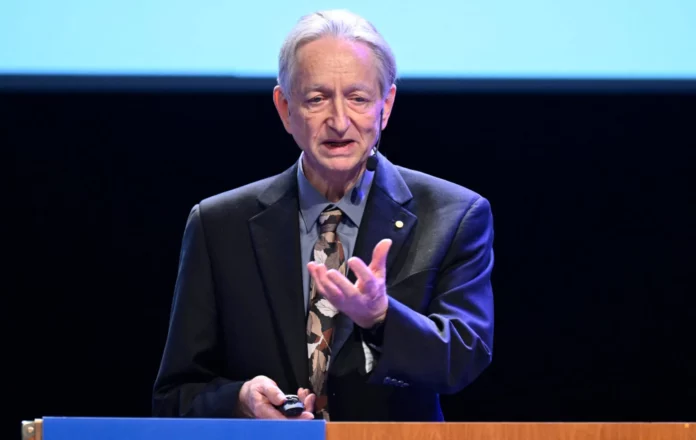An increasingly diverse coalition is forming in opposition to OpenAI’s plan to restructure itself into a fully commercial company.
On Monday, Encode, a youth advocacy organization representing young people in dozens of countries, filed an amicus brief in support of Elon Musk’s lawsuit to stop OpenAI‘s corporate metamorphosis. The lawsuit was supported by one of the most famous experts in the field, Nobel and Turing Prize winner Jeffrey Hinton, who is often called the godfather of artificial intelligence.
“OpenAI was founded as a nonprofit organization with a clear focus on security, and made a number of security-related promises in its charter,” Hinton said in a statement released by Encode along with the announcement. “It has received numerous tax and other benefits from its nonprofit status. Allowing it to destroy all of that when it becomes inconvenient would send a very bad message to the rest of the ecosystem.”
Hinton recently told the BBC that he believes there is a “10 to 20 percent” chance that AI will lead to humanity’s extinction within the next 30 years. Earlier, Hinton was more modest and estimated this probability at only 10 percent.
Currently, OpenAI is structured as a for-profit company controlled by a nonprofit board, which places certain restrictions on its mission and ability to raise money and compensate investors. Last week, the company officially announced its intention to restructure itself into a more traditional for-profit corporation, although these changes have been expected for a long time, and Musk, who co-founded OpenAI, filed his federal lawsuit seeking a preliminary injunction to stop them in November.
Encode argues that the planned conversion of OpenAI from a nonprofit organization to a Delaware public benefit corporation “would undermine the specific security commitments the nonprofit has made to the public.” In particular, the document questions whether a for-profit corporation would ever be able to fulfill OpenAI’s promise to “stop competing and start helping” any value-based organization that comes close to creating artificial general intelligence before it does.
“Today, a handful of companies are racing to develop and deploy transformative AI, internalizing profits but externalizing the consequences for all of humanity,” Sneha Revanur, president and founder of Encode, said in a statement. “Courts must step in to ensure that AI development serves the public interest.”
For its part, OpenAI urged the court to dismiss Musk’s lawsuit, arguing that he lacks standing and is trying to gain an unfair competitive advantage for his own AI startup, xAI. OpenAI has also published numerous emails and other communications from Musk, including several that the company says show that Musk advocated turning the organization into a for-profit entity as early as 2017.









